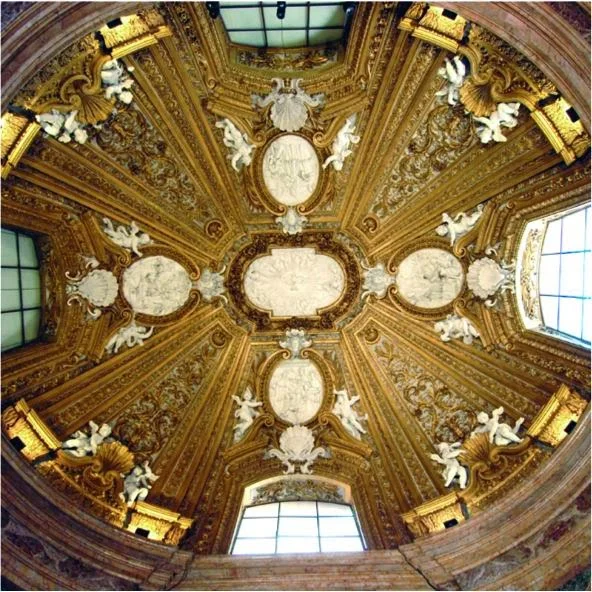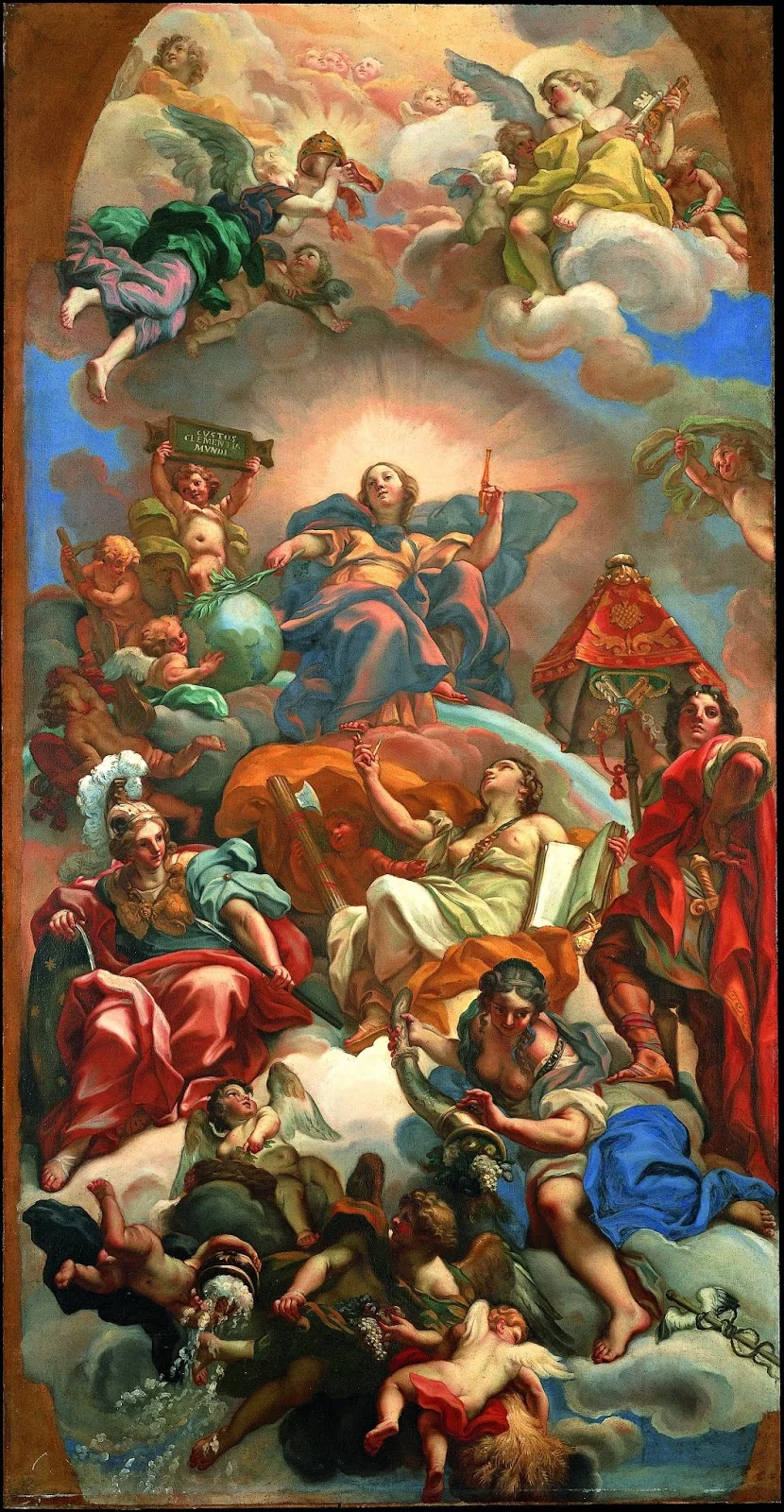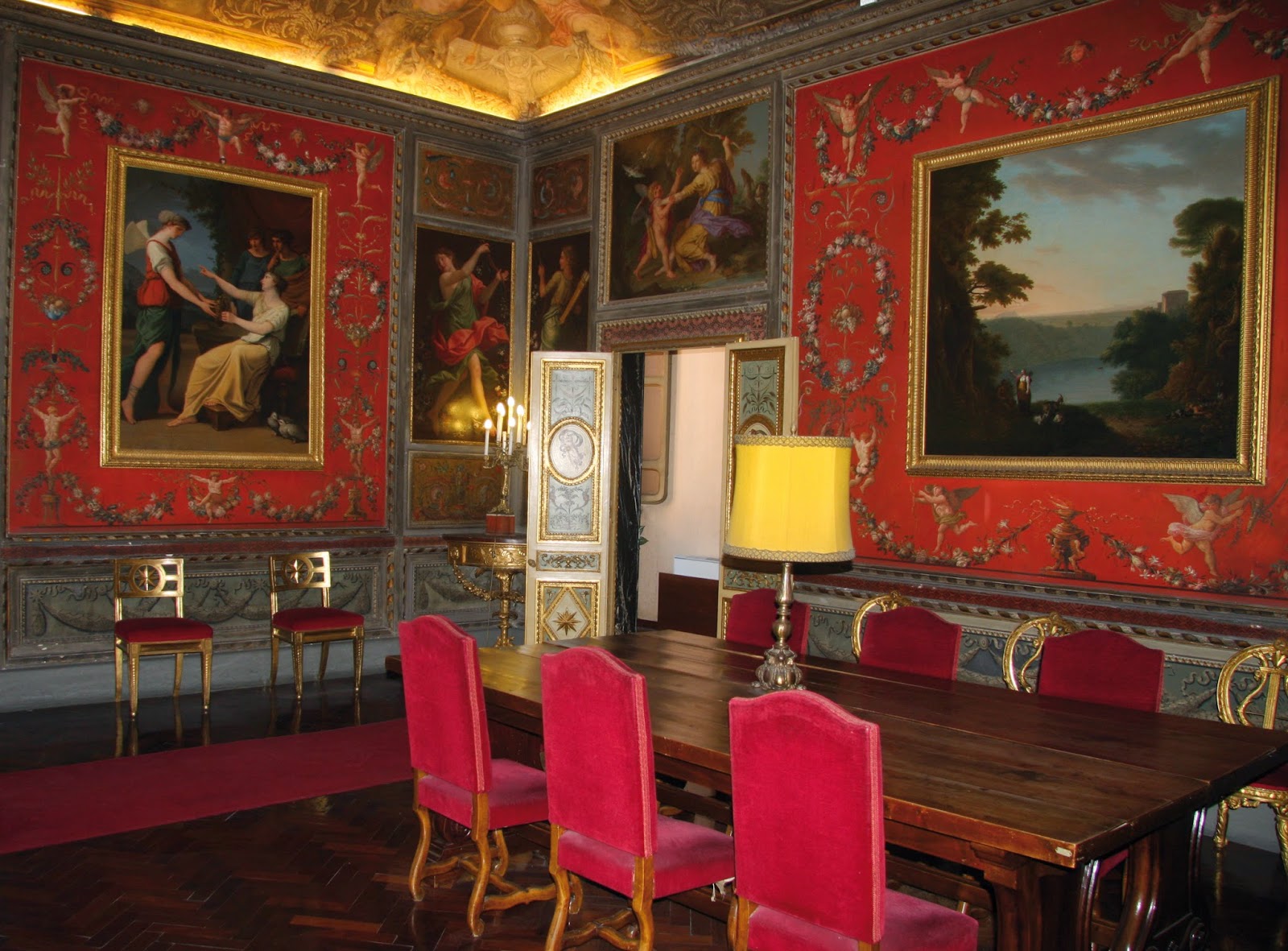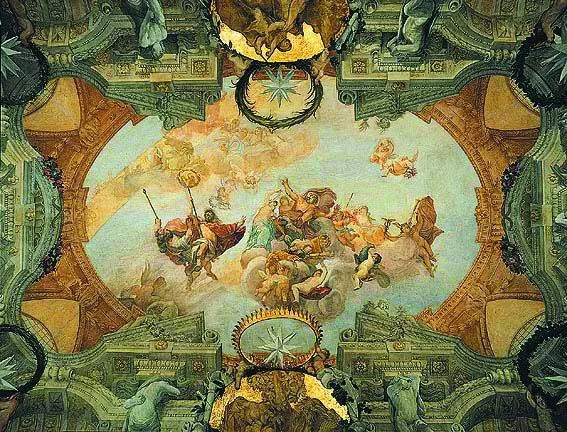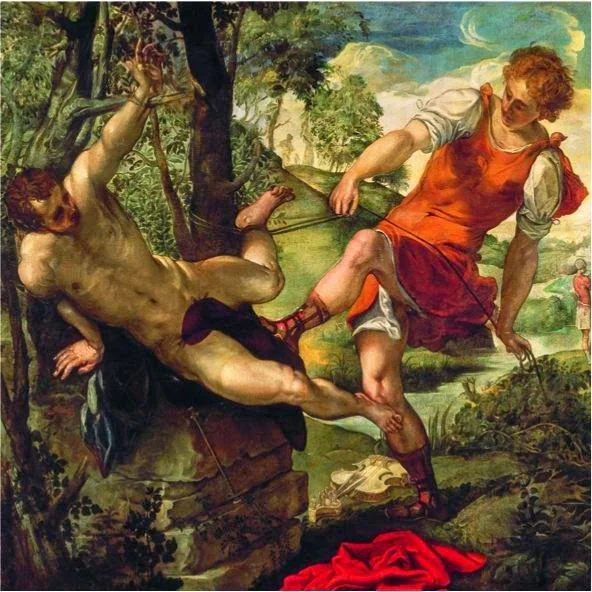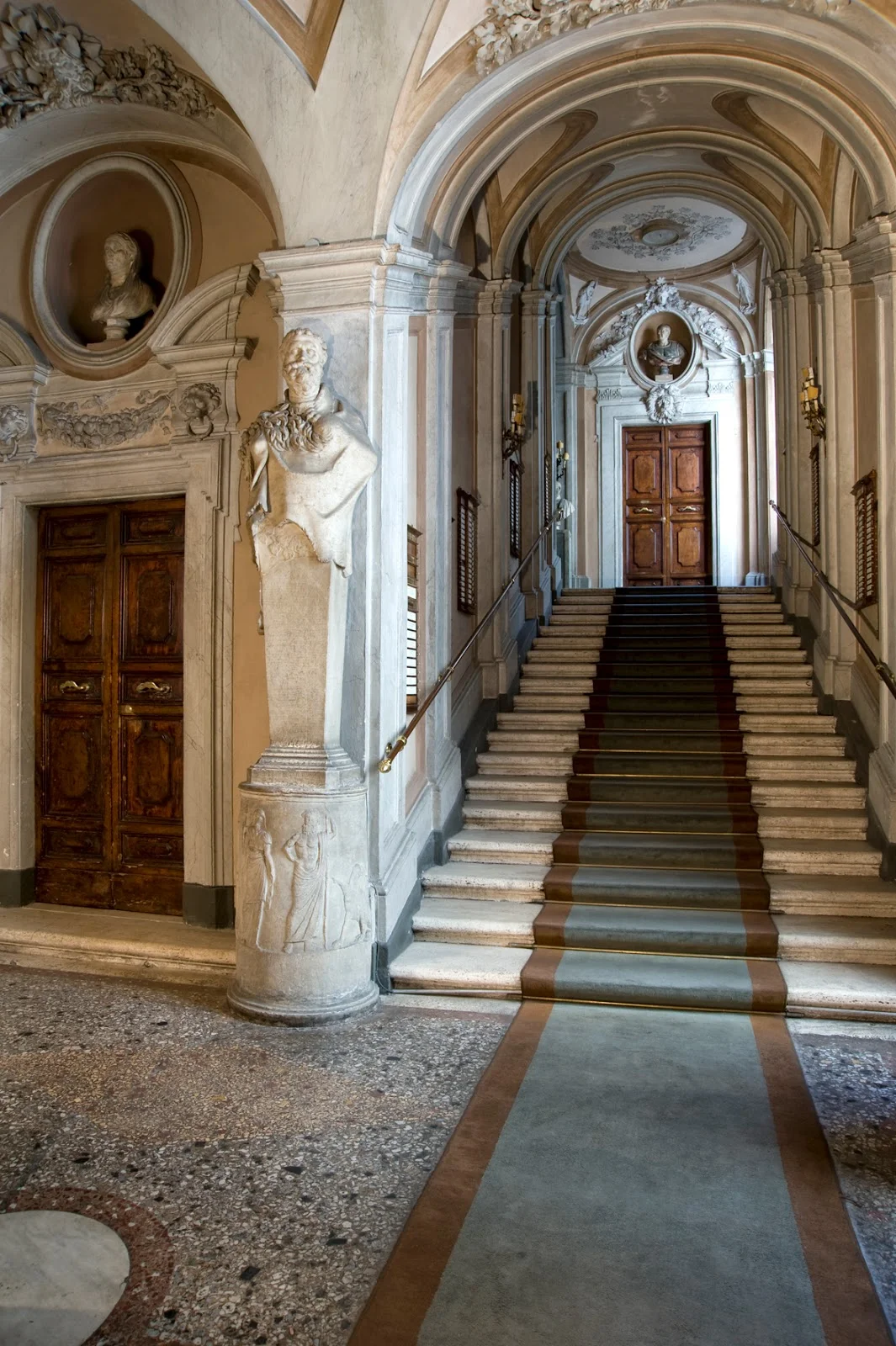Rome's Artistic Treasures .... Hidden in Banks
As if Rome didn't possess enough spectacular sights to satisfy the greedy eyes of her art-loving visitors and residents, today we'll get a chance to see even more, like the eye-popping gold-leaf and stuccoed chapel at Palazzo del Monte di Pietà above, near Campo de' Fiori.
Since even the wealthiest of Rome's old noble families can no longer afford the upkeep on their ancestral palaces, the ones that haven't been turned into museums, embassies, or cultural associations, are mostly in the hands of the banks. While I cringe to think that there are so many works of art hidden away and out of sight for the average Roman, at least one day a year, we get a chance to see them. The event is called Invito a Palazzo, and it's not just happening in Rome. All across the Italian peninsula financial institutions are opening their doors to reveal their treasures today, 4 October 2014, and the best part is, it's free!
One measly day a year is a pittance, but I don't know about you, I'll take what I can get. I have participated in Invito a Palazzo in previous years, and one of the most spectacular Roman institutions participating has its headquarters in Palazzo Altieri near the Chiesa del Gesù. This baroque wonder, closed to the public 364 days a year, is packed to the gills with glorious frescoes, paintings, and tapestries by the likes of Guido Reni, Carlo Maratta, Giulio Romano, Domenico Maria Canuti, Domenichino, Paolo Veronese, Coreggio, and many more.
If you only have time to visit one site today, this should be it!
Also opening its doors today is Palazzo de Carolis on Via del Corso. This early-18th-century palace features a gorgeous oval spiral staircase by Alessandro Specchi (of Spanish Steps fame), very similar to (and possibly inspired by) Borromini's staircase at Palazzo Barberini.
Palazzo Ronadanini, near the Pantheon, will also be open to visitors. The most noteworthy aspect of this palace is the sublime courtyard, decorated with ancient busts and sculptures, as well as intricate stucco and bas-relief details. Also on display are the sumptuously appointed rooms of the piano nobile, that some lucky bankers out there get to use as their conference rooms.
I will be visiting the Banca di Sassari, which occupies the site of a converted monastery of Santa SusannaChurch (coincidentally the American national church in Rome), not far from Piazza della Repubblica.
In addition to a collection of Sardinian tapestries above (who knew the Sardinians made tapestries?), visitors will be able to visit the underground Roman domus upon which the monastery was built, a site that has only recently been excavated.

